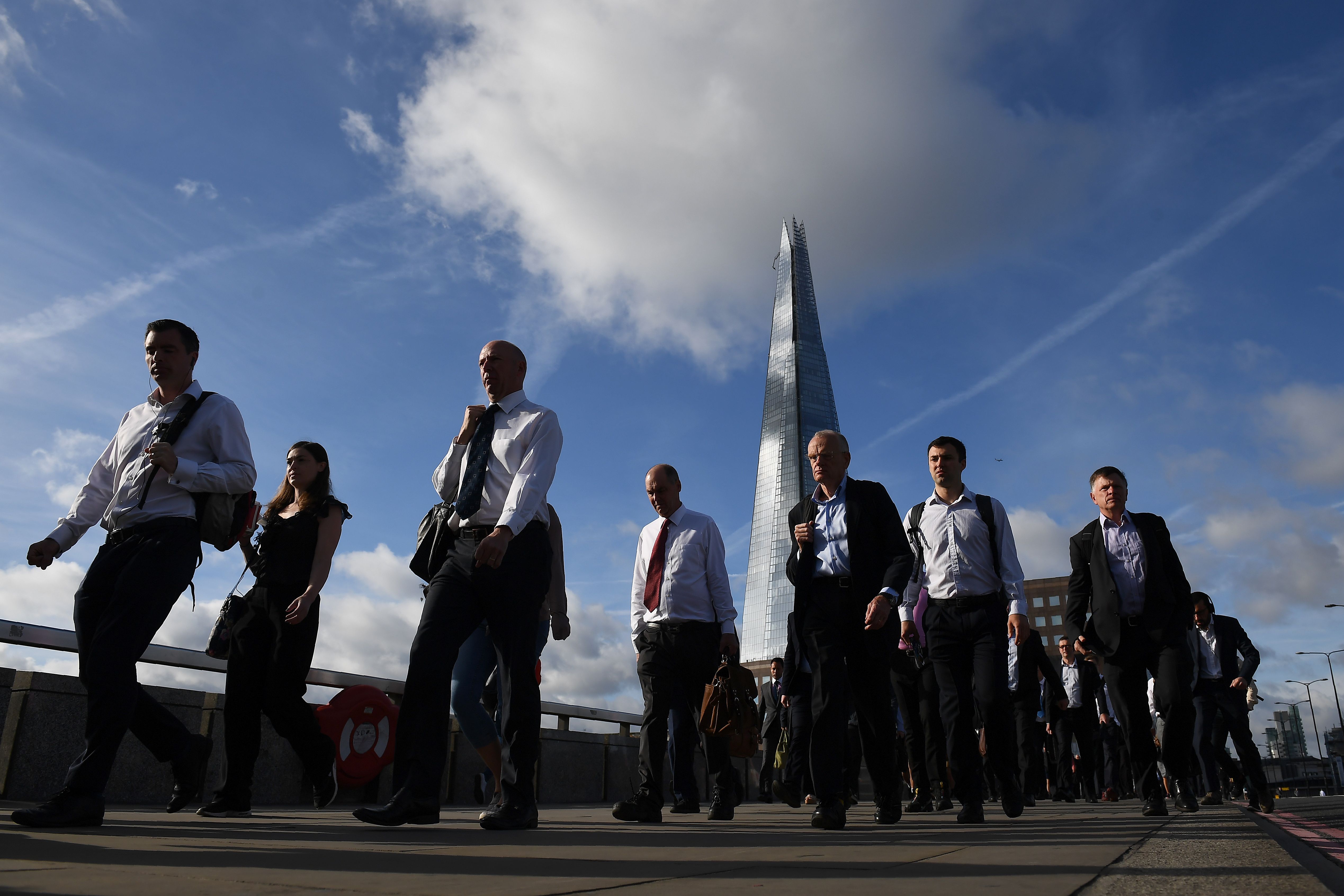Amazon Web Services (AWS) is experiencing a major outage that has taken down online services, including Amazon, Snapchat, Fortnite, and Perplexity, the AI-powered search engine. The outage has had knock-on effects globally, including in the UK. Down detector said that in Britain, HMRC, Lloyds Banking Group, EE, Virgin Media, Amazon Prime and Wordle have been affected.
Please enable cookies and other technologies to view this content. You can update your cookies preferences any time using privacy manager.
Enable cookiesAllow cookies once
Reddit users reported that the Alexa smart assistant is down and unable to respond to queries or complete requests, the Verge reported.
Amazon said on its AWS health dashboard: “Oct 20 1:26 AM PDT: We can confirm significant error rates for requests made to the DynamoDB endpoint in the US-EAST-1 Region. This issue also affects other AWS Services in the US-EAST-1 Region as well.
“During this time, customers may be unable to create or update Support Cases. Engineers were immediately engaged and are actively working on both mitigating the issue, and fully understanding the root cause. We will continue to provide updates as we have more information to share, or by 2:00 AM.”
French borrowing costs rise after rating downgrade
French government borrowing costs have risen after S&P Global downgraded the eurozone’s second-biggest economy’s credit rating a notch on Friday in a surprise update, warning that political instability put the government’s efforts to repair its finances at risk.
The yield on the 10-year French government bond rose 0.9 per cent to 3.39 per cent.
In reaction to the downgrade, finance minister Roland Lescure said that it was now “the collective responsibility of the government and parliament” to pass a budget by year-end.
S&P said the passage of a budget by year-end would help give greater clarity on how France will manage its rising debt burden, which it projected would climb to 121 per cent of GDP by 2028 versus 112 per cent of GDP at the end of 2024.
“Nevertheless, in our view, uncertainty on public finances remains elevated ahead of the 2027 presidential elections,” S&P said. It cut France’s rating to A+/A-1 from AA-/A-1+.
Kering shares rise after €4bn deal with L’Oreal
VICTOR VIRGILE/GAMMA RAPHO/GETTY IMAGES
Gucci owner Kering’s shares have risen 4 per cent this morning after it yesterday agreed to sell its beauty business to French beauty giant L’Oreal for $4 billion.
The sale comes the Kering’s new chief executive Luca de Meo moves to tackle the luxury group’s €9.5 billion of debt and refocus on its core fashion business. The company has struggled to reverse declining growth at Gucci, which was hit hard by slowing demand in the key Chinese market.
Under the deal, L’Oreal will acquire Kering’s fragrance line Creed, as well as rights to develop fragrance and beauty products under Kering’s fashion labels Gucci, Bottega Veneta and Balenciaga under a 50-year exclusive license.
The licence for Gucci fragrances is currently held by Coty and the new deal will commence when that expires, believed by analysts to be in 2028. L’Oreal shares have edged up 0.8 per cent.
FTSE 100 rises as defence stocks gain on Gaza jitters
London’s leading share index rose this morning boosted by defence stocks after concerns about the ceasefire in Gaza.
The FTSE 100 gained 45 points, or 0.5 per cent, to 9,399.71. Defence companies Babcock and Rolls Royce were among the top risers. BAE Systems also rose.
Asia-focused financial companies Standard Chartered, Prudential and HSBC rose after an increase in third-quarter GDP growth, which Beijing said put the economy on track to hit its 5 per cent growth target for the year.
Gold miner Fresnillo was down despite a rise in the price of gold to $4,257.59 an ounce.
Retailers M&S, AB Foods and Tesco slid after B&M’s downgraded its full-year profit forecast after a error. It comes a few weeks after a profits warning. B&M shares down 13 per cent.
Club Med looks to capture premium short-haul breaks
The new boss of Club Med is planning a major expansion in its Mediterranean heartland as part of plans to double its global portfolio of resorts as the 75-year-old French tour operator seeks to capitalise on growing demand for short-haul premium holidays.
Stéphane Maquaire, the chief executive, told the Times the Mediterranean is now a “top priority” within the group’s broader expansion strategy as it looks to beef up its presence in the region where Club Med first revolutionised the all-inclusive concept more than seven decades ago.
“It’s time to redevelop, grow further and have a priority focus on the Mediterranean where people are looking for short-distance travel destinations,” said Maquaire, who was appointed in July. “We need to rebalance to focus on where we are lagging behind the competition.”
Established in the 1950s by Gérard Blitz and Gilbert Trigano, Club Med was among the first travel companies to pioneer the all-inclusive model, Since 2013, the company has been majority owned by Chinese conglomerate Fosun Group, founded by the Chinese entrepreneur Guo Guangchang.
Plus500 hit by subdued market volatility
RAFAEL HENRIQUE/SOPA IMAGES/ZUMA/ALAMY
The online trading platform has reported that revenue in the three months to September 30, slipped 2 per cent to $182.7 million as subdued market volatility weighed on trading activity. New customers fell by 9 per cent to 22,644 and active customers were 5 per cent lower at 115,327.
However, adjusted profits gains 1 per cent to $82.7 million and revenue was ahead of analysts forecasts of $165 million. The company reaffirmed guidance for full-year 2025 revenue and profits to be in line with market expectations.
Discount store’s finance chief steps down as error hits profits
B&M has announced that Mike Schmidt, chief financial officer, is to step down after the troubled discount retailer said around £7 million of overseas freight costs had not been correctly recognised when it updated the market and warned on profits earlier this month.
The error stemmed from an operating system update. It has been resolved, but means adjusted profits is now projected to be in the range of £470 million to £520 million, down from the £510 million to £560 million expected after it warned on profits in a unscheduled announcement earlier this month.
B&M said a search for a new finance director has commenced and that Schmidt will remain with the company until a replacement is in place to ensure an orderly transition.
Shares in B&M have fallen by about 46 per cent over the past year. The retailer said it was facing high wage costs, and a £14 million packaging tax hit under the new Extended Producer Responsibility (EPR) rules.
Australian pension fund to build UK rental homes
Australia’s biggest pension fund has outlined plans to build a £500 million-plus portfolio of rental homes in Britain as it seeks to establish itself as a major UK landlord.
AustralianSuper will use the funds to launch a new residential rental business, allowing it to buy and build thousands of flats in cities up and down the UK. Its first development will be a block of student flats in Bristol, which is due to be ready in 2027, although it is also understood to be in talks to buy a larger portfolio of student flats.
Vicky Stanley, senior investment director of real assets at AustralianSuper, said the fund had been attracted by the “persistent demand-supply imbalance” in the UK, which has repeatedly pushed rents up to fresh highs.
AustralianSuper manages £185 billion of retirement savings for 3.5 million Australians, making it the country’s biggest pension fund and the seventeenth-largest in the world. It has £11 billion of investments in the UK already and this is expected to reach £18 billion by 2030.
Recruiters saw rise in job postings in September
JUSTIN TALLIS/AFPGETTY IMAGES
Job adverts for postal workers, messengers and couriers, head teachers and principals have increased in recent months, but those for registered specialist nurses and midwifery nurses have fallen, according to recruiters.
The number of new jobs being advertised last month was 742,967, up by more than 11 per cent from August, data from the Recruitment and Employment Confederation (REC) showed.
Neil Carberry, REC’s chief executive, said: “Recruiters reported a trickle of hiring firms coming back to the market in September. While small, this bounce back is solid and especially encouraging for an embattled hospitality sector and roles in logistics and light industrial work. Both of these are associated with employers beginning to prepare for a busy festive season.
“To build a trickle of new hiring into a river, employers will need to feel more confident in the economic outlook. That is why the upcoming budget needs to back business, not burden it.”
Japan lifts Asian stock markets
KAZUHIRO NOGI/AFP/GETTY IMAGES
Asian markets rose sharply, led by a 2.97 per cent surge in Japan’s Nikkei as political developments paved the way for the country’s first female prime minister, expected to support pro-stimulus policies.
Markets were also buoyed by better-than-expected quarterly growth in China and hints from President Trump that he would lower tariffs if Beijing offers concessions.
Globally, investors expect US inflation figures to have minimal impact, with further Federal Reserve rate cuts anticipated.
European and US futures pointed to a positive open, with the FTSE 100 expected to rise 27 points. London’s leading share index ended lower on Friday after a fall in the gold price, amid fears over America’s regional banks, and hopes for peace in Ukraine weighed on the index’s heavyweight mining, banking and defence stocks.
In the US, markets are focused on corporate earnings, with companies such as Tesla and Netflix reporting this week.
China’s GDP growth slows to 4.8 per cent
China’s economic growth slowed to the weakest pace in a year in the third quarter, as an ongoing property slump and trade tensions hit demand.
Data on Monday showed gross domestic product (GDP) grew 4.8 per cent between July and September compared with a year earlier, slowing from 5.2 per cent in the second quarter and in line with market expectations.
Over the quarter, however, the economy grew 1.1 per cent, to top forecasts, while industrial output also beat expectations with a rise of 6.5 per cent, which some economists said could reinforce Beijing’s determination to fight a lengthy trade war with the United States.
The continued fall in Chinese home prices also showed the property sector remained a drag on the economy, household wealth and spending, with retail sales growth slowing to 3 per cent in September from 3.4 per cent in August.
Authorities have unveiled modest stimulus measures this year, supported by resilient exports and strong stock markets, but renewed US-China trade tensions pose risks. Investors are hoping from more stimulus as policymakers convene this week to discuss the latest five-year plan.

